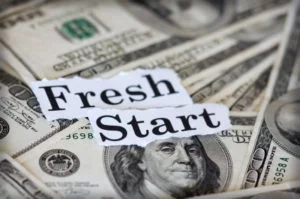Do not wait to get the help you need. Call our office today to request your free financial empowerment session!
If you are considering bankruptcy, your credit score is likely low already. However, you may be concerned about how low it will go if you file for bankruptcy. In actuality, the damage that bankruptcy will have on your credit score depends on how your credit was prior to filing.
If you have many accounts that are delinquent with late payments and your debt-to-asset ratio is high prior to bankruptcy, then your score is likely already low. Filing for bankruptcy will eliminate late payments and reduce your debt-to-asset ratio. Thus, although the bankruptcy will negatively impact your score, it will also have some positive impact. Your score may not drop as low as you think it will after bankruptcy.
However, if you have very few late payments and simply don’t feel like you can keep making those payments, then your credit score may take a bigger hit. It’s best to consult with a bankruptcy attorney before filing for bankruptcy in Dallas so that you can understand your options and how bankruptcy will impact you specifically, and the steps you can take to repair your credit afterward.


